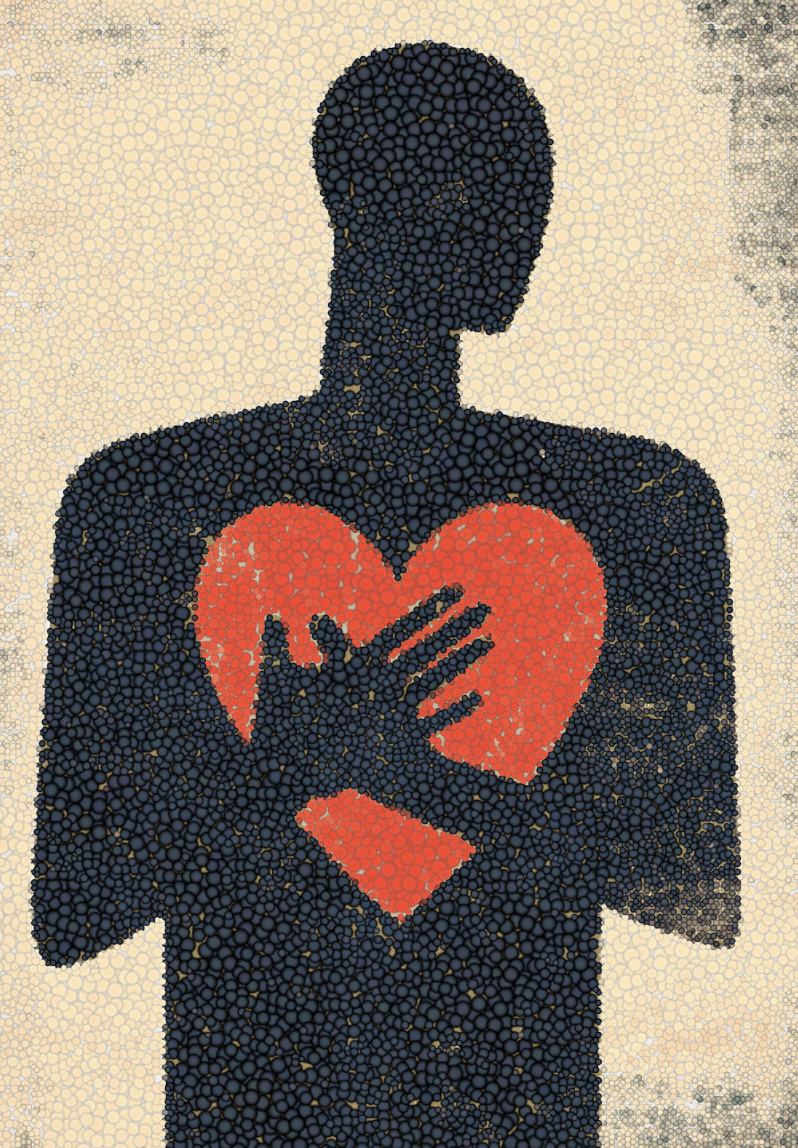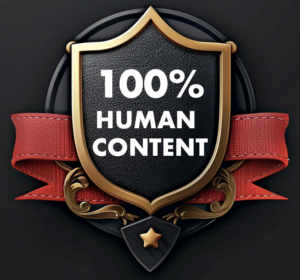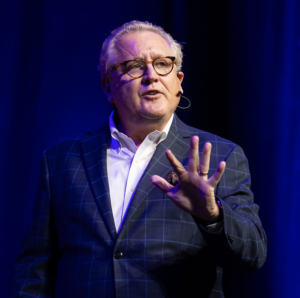
“The most human company wins.”
If I ever had something close to a “catch phrase,” it’s probably this. I use these words to end most of my speeches. It is the central theme of my Marketing Rebellion book. Of the millions of words I have written, this is the only phrase I have trademarked.
But I had to pause this week and wonder if it’s still true. The data is in, and it’s startling. AI isn’t just matching human empathy—it’s now exceeding it. What happens when the AI bots are more human than humans?
The empathetic bots
If you’ve immersed yourself in the world of AI (and I hope you have), you’ve witnessed the inexorable and explosive improvement of these systems on every level.
Recent breakthroughs show that AI can now reason through problems instead of just collating web data, demonstrating human-like logic. And now, AI can express empathy and understanding in a way that is more human than humans.
New research (first reported by Mike Kaput of the Artificial Intelligence Show) suggests that AI may not just match human empathy but, in some cases, exceed it. A team of researchers tested whether people could tell the difference between responses from GPT 4 versus licensed therapists when presented with therapy challenges. The participants struggled to tell AI from human responses, and when they were asked to rate them, they preferred the AI responses in key areas like empathy, therapeutic alliance, and cultural competence.
This doesn’t necessarily mean the AI therapist was more effective in producing results in a patient. In fact, there is evidence of harm coming from bot-therapists. However, the breakthrough idea is that AI can produce empathetic responses that are preferred over highly skilled professionals, and there are some interesting implications for that.
Is it real human emotion? No. But it doesn’t seem to matter.
The leap to the business world
It doesn’t take much imagination to see how scaling soft skills like this could provide immediate value in the corporate world.
 Allstate, one of the largest insurers in the U. S., is using AI to generate nearly all its emails for communications about claims. The reason — responses from bots are less accusatory, use clearer language, and express more empathy than humans, according to the company.
Allstate, one of the largest insurers in the U. S., is using AI to generate nearly all its emails for communications about claims. The reason — responses from bots are less accusatory, use clearer language, and express more empathy than humans, according to the company.
Allstate is using ChatGPT to fuel the customer replies, while grounding them in company-specific terminology.
“When these emails used to go out, even though we had standards and so on, they would include a lot of insurance jargon. They weren’t very empathetic … Claims agents would get frustrated, and so it wasn’t necessarily great communication” said Allstate Chief Information Officer Zulfi Jeevanjee in a Wall Street Journal article.
Allstate’s 23,000 insurance reps send out about 50,000 communications a day with people who have claims, either trying to get more information or negotiating a settlement amount, Jeevanjee said. Now, almost all of them are written by AI. “The claim agent still looks at them just to make sure they’re accurate, but they’re not writing them anymore,” he said.
Implications for our human work
Some people have soothed themselves by hoping that we could never take real human empathy out of our jobs. But these developments show that extracting humans from a process can produce results that are more empathetic, patient, kind … and profitable.
AI might represent perfect empathy. It never tires. It never judges. It maintains unwavering patience and understanding, 24 hours a day, 365 days a year. It can instantaneously access and process vast databases of human psychology, cultural contexts, and communication strategies. It can read micro-expressions better than humans, understand vocal tone with greater accuracy, and predict emotional responses with superior precision.
If a customer receives better care, feels more understood, and achieves better outcomes with AI, what possible value is there in knowing their customer service rep or account manager is a human who has “real” feelings?
The harsh truth is that in many cases, human empathy will become a liability. Organizations that cling to human-delivered empathy will find themselves at a competitive disadvantage, unable to match the consistent, scalable, and superior emotional intelligence offered by AI.
Right?
Does human empathy matter?
About 20 years ago, I went through the darkest time of my life, an episode I describe in Chapter 1 of my book KNOWN. I would not wish that experience on anyone, but I emerged with a new superpower.
When I meet somebody who is “below zero” in their life, I can look them in the eye and express empathy based on my own experience. It’s not perfect. I’m not a trained psychotherapist. But sometimes, the perfect empathy isn’t based on a database or interpreting micro-expressions. It’s messy. It comes from a hard, lived experience. It comes from scars.
When you’re just trying to get through life hour to hour, you need something more than a bot.
It’s a paradox. While AI can demonstrate behaviors that appear more consistently empathetic than humans, this very fact illuminates something profound about human nature and our future role in an AI-dominant world.
The human advantage isn’t in flawlessly executing empathetic responses — it’s in our capacity for genuine connection, especially when we’re imperfect. We can relate to others precisely because we share the messy reality of being human: we know what it means to struggle, to doubt, to sit in a dark corner and sob. Our empathy comes from going through an existential war, not AI pattern recognition.
What emerges isn’t a story of replacement for human empathy, but of evolution.
The most human company
Yes, the most human company still wins. But the most human company will be the one that thoughtfully blends AI’s reliable, empathetic responses with unique moments when we need our messy, vulnerable, beautiful, authentically human selves.
Those companies will recognize that while AI can handle the day-to-day empathetic heavy lifting, breakthrough human connections — those moments of real understanding, creativity, and growth — still require human hearts and minds.
One time, I had a coaching call with a young man who had a resume-writing service. This is a pretty boring product that has been commoditized. I struggled to help him find a meaningful niche where he could stand out.
“Why do you do this job?” I asked.
He became emotional and animated. “I see people every day who have not looked for a job in 20 or 30 years,” he said. “They are terrified. I know I can help them. I will hold their hand through this process. I will not let them down.”
I told him to record a video of himself saying exactly that and post it on the front of his website immediately. His humanity was his niche.
Sometimes, true human empathy is everything.
The most human company wins. Now and forever.
 Need a keynote speaker? Mark Schaefer is the most trusted voice in marketing. Your conference guests will buzz about his insights long after your event! Mark is the author of some of the world’s bestselling marketing books, a college educator, and an advisor to many of the world’s largest brands. Contact Mark to have him bring a fun, meaningful, and memorable presentation to your company event or conference.
Need a keynote speaker? Mark Schaefer is the most trusted voice in marketing. Your conference guests will buzz about his insights long after your event! Mark is the author of some of the world’s bestselling marketing books, a college educator, and an advisor to many of the world’s largest brands. Contact Mark to have him bring a fun, meaningful, and memorable presentation to your company event or conference.
Follow Mark on Twitter, LinkedIn, YouTube, and Instagram
Image courtesy Mid Journey


